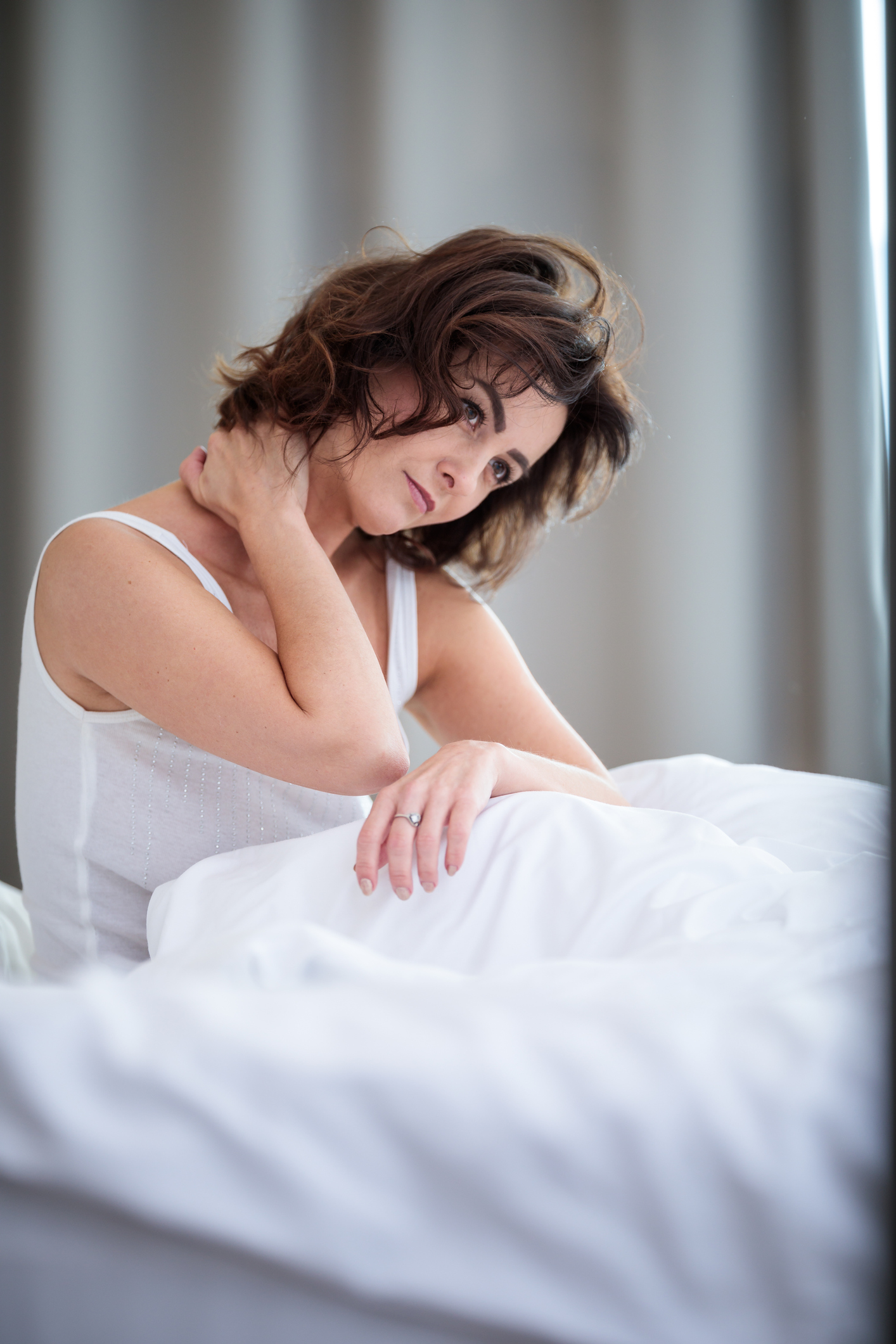Get Easy Health Digest™ in your inbox and don’t miss a thing when you subscribe today. Plus, get the free bonus report, Mother Nature’s Tips, Tricks and Remedies for Cholesterol, Blood Pressure & Blood Sugar as my way of saying welcome to the community!
Why dairy doesn’t do your body (or bones) good during menopause

Everyone loses some bone mass with age, but women going through menopause lose the most by far. Why?
Because during menopause, your body’s production of the hormone estrogen drops dramatically… and estrogen plays an important role in protecting bones.
More specifically, estrogen encourages the activity of osteoblasts (cells that create bone). Without enough estrogen, these cells don’t create bone as effectively. As a result, menopausal women are prone to severe bone loss (also known as osteoporosis) which puts them at risk for bone breaks and fractures.
The good news is there are a lot of ways to preserve your bone mass during menopause. The bad news is one of the most popular methods of maintaining bone mass doesn’t seem to work for menopausal women…
Dairy products don’t improve bone density for menopausal women
Dairy products contain more than 12 nutrients that promote healthy bones, including calcium, phosphorus, vitamin D and protein. So, it’s no wonder that they’re one of the top food groups recommended for women going through menopause.
But according to a new study published in the North American Menopause Society’s journal Menopause, dairy products don’t do a dang thing to protect the bones of menopausal women…
In the study, researchers looked at the impact of dairy intake on the mineral density of the femoral and spine bone of 3,302 women. To do that, they examined a food frequency questionnaire that gauged daily dairy intake. They also tracked bone mineral density in the femoral and spine bone over a 10-year period. Here’s what they determined…
Women who ate more dairy didn’t have better bone density. In fact, there was no difference between women who ate a lot of dairy and women who ate very little. Women who ate a lot of dairy products also weren’t any less likely to get fractures.
Considering the number of bone-boosting nutrients in dairy products, this outcome is surprising to say the least. And it’s important to mention that it does stand in contrast to other research that shows dairy does make a difference for menopausal women, including one 2017 study that found dairy and animal protein consumption did improve bone density in 750 post-menopausal women.
How to keep your bones strong during menopause and beyond
So, if consuming dairy isn’t a surefire way to maintain your bone density during menopause, what should you do?
Well, eating a Mediterranean diet has been shown to reduce bone loss in people with osteoporosis as well as in premenopausal women. Just in case you don’t know, the Mediterranean diet includes fruits, vegetables, whole grains, healthy fats, lean protein such as fish and moderate amounts of dairy.
Could it be because foods recommended in the Mediterranean diet are higher in vitamin K content (good sources are green leafy vegetables, nuts and healthy fats, like from olive oil and fatty fish)? A study in 2013 found taking 180 mcg daily of vitamin K (specifically vitamin K2 supplements of the type menaquinone-7 or MK-7) helped reduce bone loss in healthy women who had been through menopause.
Doing weight-bearing exercise daily is also a great way to maintain bone mass during menopause and beyond. That includes activities like walking or jogging. Yoga and tai chi are also great forms of exercise to practice during your menopausal years (and throughout your life, really) because they improve your balance, which could help keep you from falling and experiencing a fracture or a break.
So, even though dairy may not be the bone savior you thought it was when you were younger, you can still turn to a few old standbys — healthy eating and exercise — to keep your bones strong and healthy in the years to come.
Sources:
- Dairy consumption ineffective in preventing age-related bone loss or fractures — EurekAlert!
- Dairy Intake Is Not Associated With Improvements in Bone Mineral Density or Risk of Fractures Across the Menopause Transition: Data From the Study of Women’s Health Across the Nation — Menopause.
- Aging and bone loss: new insights for the clinician — Therapeutic Advances in Musculoskeletal Disease.
- Osteoporosis: What You Need to Know as You Age — Johns Hopkins Medicine.
- Estrogen Replacement Therapy for Osteoporosis — EndocrineWeb.
- What Women Need to Know — National Osteoporosis Foundation.
- Daily Dairy Doesn’t Improve Bone Strength in Midlife Women — Medscape.
- How a Mediterranean diet could reduce bone loss in osteoporosis — ScienceDaily.
- Menopause Diet: How What You Eat Affects Your Symptoms — Healthline.
- Peripheral Skeleton Bone Strength Is Positively Correlated With Total and Dairy Protein Intakes in Healthy Postmenopausal Women — American Journal of Clinical Nutrition.
- Adherence to a Mediterranean Diet and Bone Mineral Density in Spanish Premenopausal Women — Nutrients.













